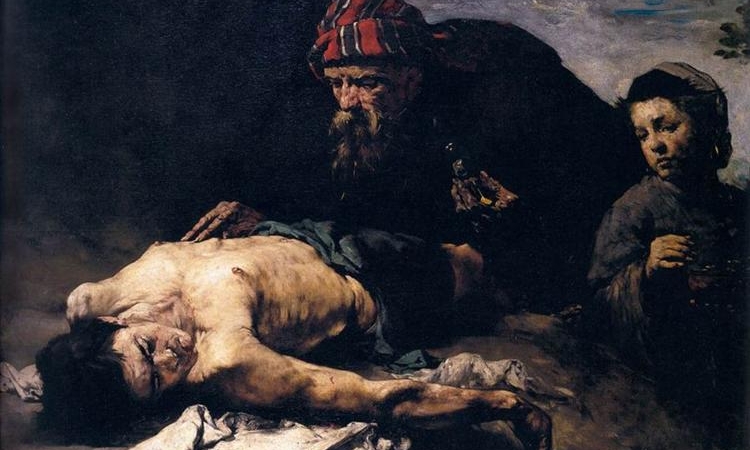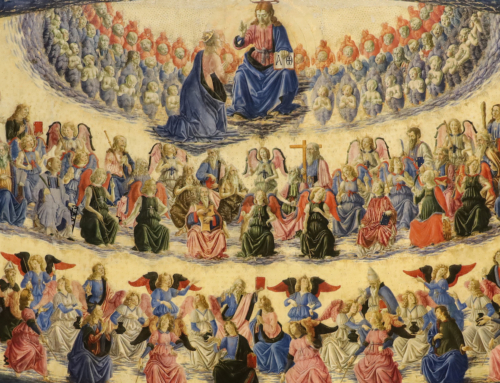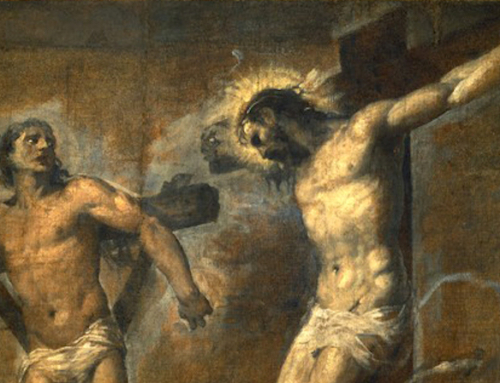Who is my neighbor? Such was the question of a lawyer looking to justify himself. This lawyer had just been praised by Jesus for knowing what the law demands in order to obtain eternal life: love God and love your neighbor. Yet he balked when asked to follow the law he knew so well, and he sought to limit the charity demanded of him. Jesus followed up with a rebuke in the form of the story of the Good Samaritan. When Jesus subsequently asked the lawyer who was a neighbor to the man beset by robbers, the lawyer could not even bring himself to name the Samaritan directly. Only in a roundabout way did he admit, “The one who showed him mercy.” “Go and do likewise,” was Jesus’ response (Lk 10:25–37).
We can see from this parable that sometimes, by too narrow an interpretation of the law, “the letter kills, but the Spirit gives life” (2 Cor 3:6). When a grace-filled Christian asks the question, “Who is my neighbor?” it cannot be to justify himself. Instead, the love of God must impel him to seek Christ in everyone he comes across, particularly among the poor. The behavior of the Good Samaritan is the minimum demand placed upon a Christian: to help those in need whom he encounters. Christian charity cannot, however, stop there. It must reach further and seek out the poor wherever they are hidden away, whether they be in hiding due to shame or have been set aside by the rejection of others.
The Gospel passage of the Good Samaritan was proclaimed on August 22, 1997, at the beatification Mass of Bl. Frédéric Ozanam. And the charity of the Good Samaritan was that which Pope St. John Paul II saw in the life of Bl. Frédéric Ozanam. Today is not his feast day, but today is the feast of St. Vincent de Paul. It was in 1833 that Bl. Frédéric and six of his fellow students in Paris founded a “Conference of Charity.” Not long after, they changed the name to the Society of St. Vincent de Paul and placed their endeavor under the patronage of this saint. Today, nearly two hundred years later, this foundation has expanded to a network of charity that embraces the entire world. The St. Vincent de Paul Society was formed to answer a charge, posed by fellow students of a Utopian Socialist bent, that will sound familiar even to the ears of Catholics in our own time:
They said to us: “You are right if you speak of the past: christianity [sic] has in other times performed prodigies; but today christianity is dead. And, indeed, you who boast of being Catholic, what do you do? Where are the works which demonstrate your faith and which will make us respect and acknowledge it?” (Thomas E. Auge, Frederic Ozanam and His World, 28).
This charge called not for a response of words, but a response of love. It was just such a response that these young laymen admirably provided. The first goal of the members of the St. Vincent de Paul Society is, of course, their own holiness, but this holiness is well expressed by the words of St. Vincent de Paul centuries earlier. “Let us love God, my brothers, let us love God, but let it be through the work of our hands, let it be by the sweat of our brow” (see Pope John Paul II’s homily for the beatification of Bl. Frédéric). The Christian faith lives through works, through love. And it is a love that cannot remain at home, even if it begins there. According to their rule, members of the society “strive to seek out and find those in need and the forgotten, the victims of exclusion or adversity” (Rule, 1.5). In seeking out these men and women, they give witness that their faith lives and that Christianity is not dead.
In our current cultural milieu, one doesn’t necessarily need to go very far to seek out the poor. In fact, one can start with his neighbors. There may be a shut-in widow or a man who just lost his job only a few doors down. And if after one has attended to his immediate neighbors he is still impelled by the love of Christ to range further afield, then there are societies of Christians, such as the Society of St. Vincent de Paul, wherein he can work with others to be Christ’s hands and feet.
✠
Image: Theodule Ribot, The Good Samaritan







